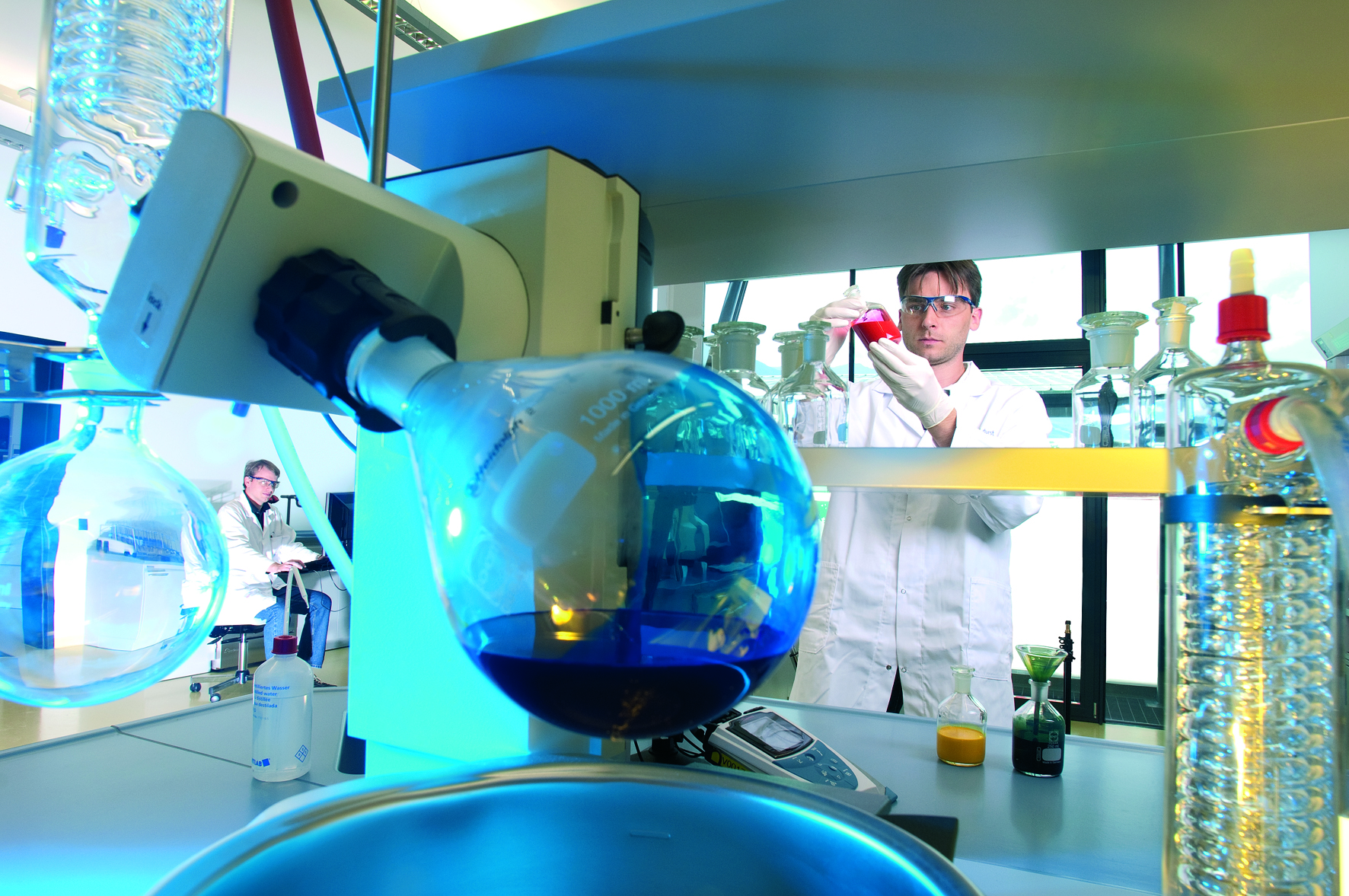CD Laboratory for Functional and Polymer Based Ink-Jet Inks
Head of research unit
Commercial Partner
Duration
01.01.2019 - 31.05.2019
Thematic Cluster

The chemistry of functional inkjet printer inks and their application in new areas are being researched. New and innovative printer inks are being developed that represent a UV-curable, non-irritating and biocompatible alternative to previously used products. The use of non-irritating and biocompatible printer inks for the manufacture of medical technology products is also being considered.
Current printing processes use printing inks that contain irritating or harmful substances. These include acrylate/methacrylate monomers and low-molecular photoinitiators, which can enter the body via the respiratory tract and skin and cause irritation. Strategies for avoiding these substances in the manufacture of printer inks are being investigated as a first step.
Various processes such as the use of UV-reactive systems based on thiol-ene photochemistry and the use of functionalised nanoparticles and water-based polymer dispersions are being tested. Both the composition of biocompatible and highly environmentally compatible components and photochemical processes that do not require irritating process chemicals open up new application possibilities.
Areas of application for these newly developed, biocompatible and highly environmentally friendly printing inks in the production of optical elements and even three-dimensional, biocompatible structures are being researched in a second step. For example, reflective elements and structures for conducting electromagnetic waves (waveguides) are being realised, which are of great interest for the development of security features such as holograms. Three-dimensional, biocompatible structures are made possible by 2D and 3D multilayer printing and can be used in the Medicine sector, e.g. for bone healing and arterial prostheses.
The results of these research activities have direct relevance for the future of industrial printing processes, as production can be highly environmentally friendly, harmless and allergy-free. The products realised meet increasing demands for consumer protection, especially as such harmless and food-safe printing inks are also suitable for printing on clothing and food packaging in accordance with applicable standards. Body compatibility is also an essential requirement in the manufacture of medical technology products such as implants and prostheses.

Christian Doppler Forschungsgesellschaft
Boltzmanngasse 20/1/3 | 1090 Wien | Tel: +43 1 5042205 | Fax: +43 1 5042205-20 | office@cdg.ac.at

